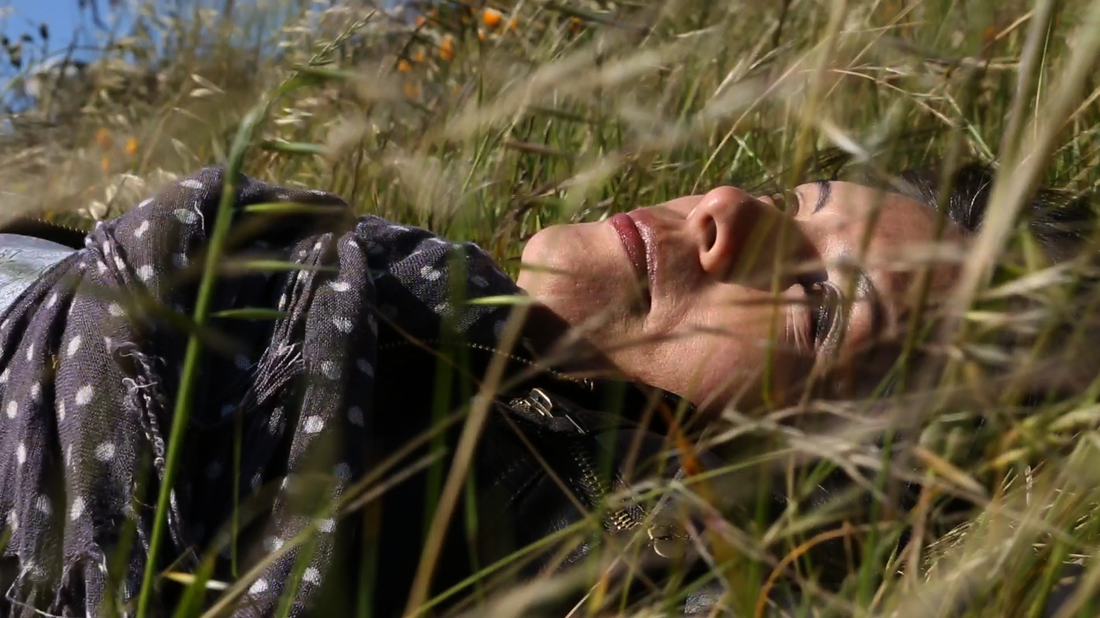 When the phone rang at the predetermined time and I saw it was a San Francisco area code, I panicked a little bit. I had no idea what to expect of my interview with filmmaker Mabel Valdiviezo on Prodigal Daughter, her in-progress film about her healing journey of reconciliation with her Peruvian family after sixteen years of silence as an undocumented immigrant in California. I swallowed my nervousness, took a deep breath and answered as I opened up my laptop to take notes. A few days before this call I had received an email from Prodigal Daughter's PR manager asking if I would like to interview Mabel for my blog. I am always surprised to find that anyone even reads my blog, so I was pretty flattered at the opportunity to connect with an award-winning filmmaker with such illustrious words as "Sundance" and "Cannes" scattered about in her bio.
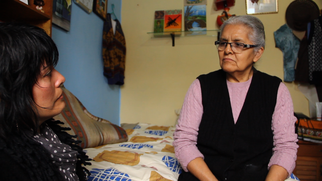 Taymar: I enjoyed watching your trailer and reading about this project. What inspired you to make this film? Mabel: I started the film when I got my visa. I wasn’t really ready to share my story. At some point I came to terms with it. As I started working on the film I realized that there were two things happening. One was very unconscious, a very deep need to find a healing tool for my journey, having gone through everything I went through. As a tool for dialogue, as a tool for help. What really inspires me is that when people watch they respond [to the fact] that my story is such an intimate story...[when they saw the trailer at a screening] it struck...a very emotional chord with other women there. **** Taymar: What do you want to accomplish with this film? Mabel: I hope that it will evolve into a movement and help others. Taymar: In the trailer you reveal that you have cancer. How did this impact the film? Mabel: Cancer showed up in the middle of production. It was hugely surprising. I thought I was pregnant because I had a huge belly, and my doctor said you’re not pregnant, and sent me to oncology. That was the beginning of my connection with my family, so I had to figure out how to heal the broken bonds with my family. And my connection with my family became stronger because of the clock ticking. Taymar: How are you doing now? Mabel: I’m feeling good health wise, I haven’t had too many big interventions for the past while. I’ve had two chemos, in 2012 and 2013, and I vowed that I would try to find other, holistic approaches because the chemo is so difficult. So i’m just living a healthy life in the best way that I can, so it will stay like this. Taymar: Is the cancer gone? Mabel: I can’t really say at the moment, but I don’t see it stopping me from doing what I’m doing. I just have to be careful about my choices health wise. Taymar: Is this a movie about cancer? Mabel: It’s about the intersecting themes of the immigration narrative with healing from trauma and reconciling with family. The cancer was just the tip of the iceberg. Throughout my life I dealt with difficult issues...Having to hide in the shadows, trying to survive, especially as a woman, it kind of marks you. And it’s very hard to come out of...the trauma for having to leave your country in the middle of crisis, and then of surviving. Not having the access, the family, the community…that most people take for granted. And it has an impact on your mental health. Some people react to cancer in different ways, I reacted after the shock, "Why is this happening to me?", and went into a more mindfulness mode. This may be an effect of my need to heal these things. So I went into an internal journey. I rediscovered my need for going back. I use journaling, it helps me a lot. There is very great potential with communities that like the idea that I could show the film and have meaningful discussion after the film about mental health and healing. Maybe do a healing art journal workshop after the film. So the film will be an opening door to find a safe place to heal. Taymar: Who is this film for? Mabel: I think this film will help immigrant women and women who have survived trauma. I think most immigrant women have survived trauma. It’s very typical for immigrant women to have gone through trauma. Women who are not immigrants are still going to relate to the aspects of the difficulties as a woman of finding empowerment. Taymar: What are the themes you think they will relate to? Mabel: Not having seen family for a very long time. That’s like my story. I went through that. I left my country in a time of great political turmoil. I came here with aspirations to become an artist, specifically a filmmaker. To become a filmmaker I went through a whole journey, I had no plan. I found myself in position where I couldn’t find work. I had to go work under the table in any way that I could in order to survive as a woman. I found myself very disempowered, it led me to be in a place where I lost faith in myself. I lost my confidence. Feeling like you don’t exist, you don’t have a voice, and nobody’s going to hear you because you don’t have a voice, a lot of women go through this. In the culture that we live in, it’s not perfect, there’s still a lot of inequality for women. I didn’t even know who I was for awhile. I had a really strong identity before I came, but I lost it. I was a Peruvian, a rebellious punk. And I came here, and I went to San Francisco thinking that of course I would fit in. But I got lost in my situation. At some point in my life I started to figure out that I needed to get out of that disempowerment situation. I had to start to trust people in my life. Eventually I got married, and made that transition. How can somebody transition or transform to this other side of life? And hopefully make something meaningful out of it? Taymar: In the trailer you hint at something bad that happened to you that kept you from coming back to your family. Mabel: Yes, it was something I never talked to anybody about. It was only going back that I was able to talk about it. It was very significant. It was very hard for me to bring it up to my brother. When I was able to move out of it, and journal the first thing that showed up was when those things happened to me. I really needed to release that. Taymar: This project is so inspiring. When is it going to be finished? Mabel: It depends on how it goes with funding and post-production. Maybe another nine months before this film is done. My goal is to have it done in time for March 16th, International Women’s Day. Taymar: Yes, that seems very appropriate. Thank you for talking to me today, I look forward to seeing your film. **** After we hung up I made a few more notes and saved the file for later. I had told Mabel that I was going to wait to publish our interview until after she went live with her fundraising campaign. Then, life happened and I got crazy busy. Finally I had a chance to sit down to post the interview. I contacted Mabel first letting her know that I was ready to publish and she was giddy with enthusiasm. She had a backer on beaconreader.com who had agreed to match funds dollar to dollar! This campaign is going on now. Please take a few minutes to read more about this project and watch the trailer on beaconreader. If you can chip in to make this project happen, please do, if they don't make their goal the project will lose all of the funding they've raised so far. This story touches my heart. America as we know it is built on so many dreams of immigrants, yet we continue to stigmatize new immigrants and provide little support for their dreams. Making art in America is not easy. Making art as an immigrant in America is even harder. I am so impressed with Mabel Valdiviezo for all that she has accomplished, and continues to accomplish. I'm looking forward to watching Prodigal Daughter on International Women's Day this year.
0 Comments
|
Archives
April 2022
AuthorSince becoming a mom to a little boy with Trisomy 21 I have written a lot about Down syndrome and disabilities. I am a storyteller, wife and mom to a teen and a toddler. Life is busy! Categories
All
|
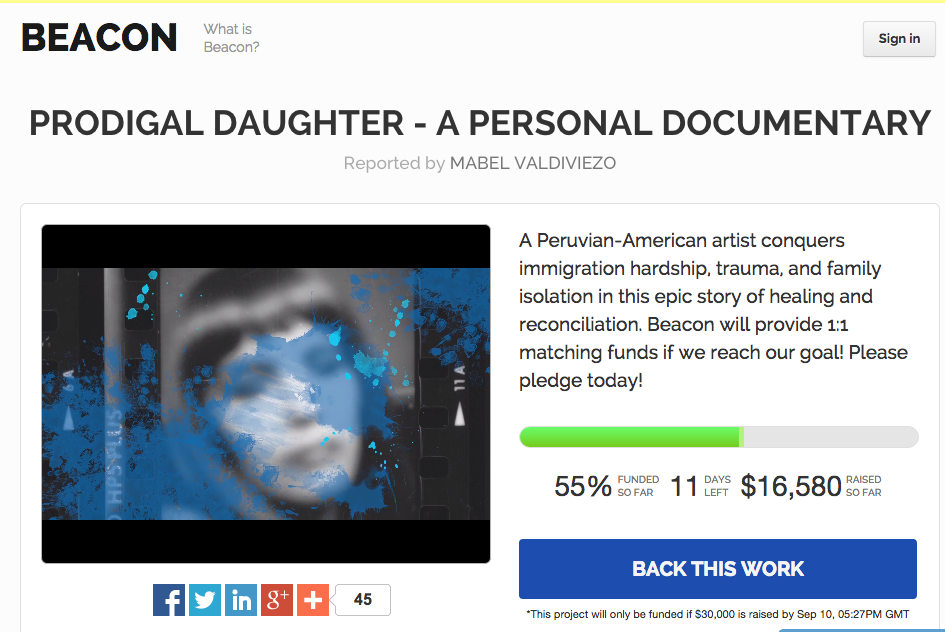
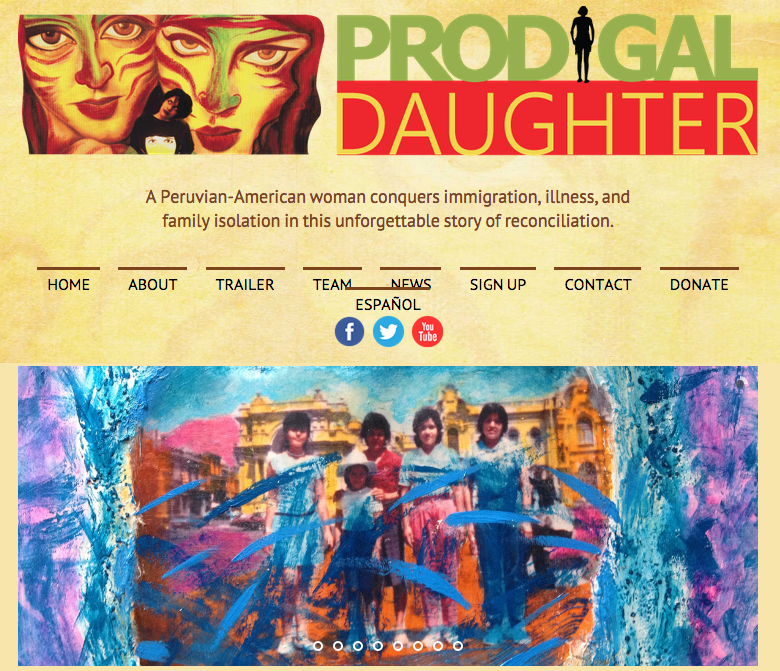
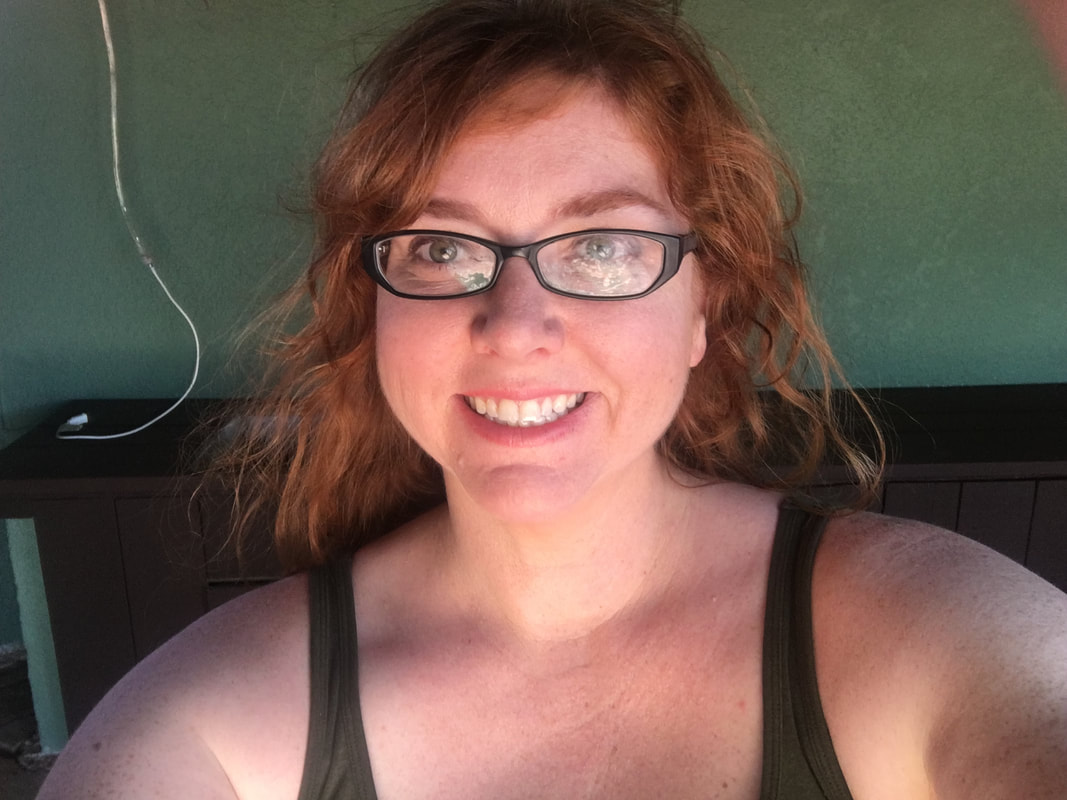
 RSS Feed
RSS Feed